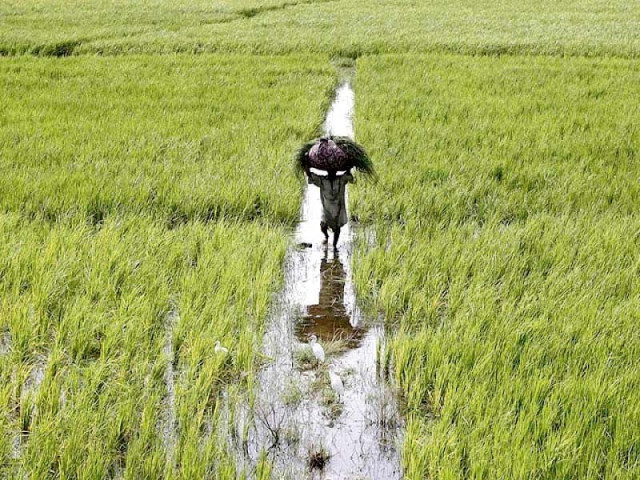Farmers struggle with rising costs, high tariffs
No concrete measures taken to eliminate mafia, address seasonal input shortages

Pakistan’s agriculture sector, the backbone of its economy, after posting an overall growth of 6.25% in financial year 2023-24, is once again encountering multiple challenges, which are threatening the survival of farmers and the country’s food security.
Though the government pretends that it is listening to the plea of farming community, which is facing scores of problems, ie, skyrocketing costs of inputs, high electricity tariffs for tube wells and persistent urea shortage, no concrete measures have been taken to eliminate the mafia, address seasonal shortages of farm inputs and such allied issues. “One of the most urgent issues is the escalating cost of agricultural inputs. Prices of seeds, fertilisers, pesticides and other essential materials have surged dramatically,” said Walid Ali, a wheat farmer from Punjab. “This has significantly increased cost of production, making it harder for farmers to sustain their operations.”
Over the past year, the cost of seeds has doubled and fertilisers have become almost unaffordable. “We are struggling to make ends meet, and many of us are contemplating abandoning farming altogether,” he added.
Pakistan Kissan Ittehad President Khalid Mahmood Khokhar pointed out that high electricity tariffs for tube wells were another major burden on Pakistani farmers. Tube wells are crucial for irrigation, especially in regions with scarce rainfall. However, a steep hike in electricity costs is draining farmers’ resources.
Historically, the electricity tariff for industry and agriculture has been Rs37.68 and Rs31.20 per unit (financial year 2023-24), Rs29.92 and Rs21.68 per unit (2022-23), and Rs21.65 and Rs13.14 (2021-22) per unit respectively, meaning the agricultural tariff remains lower than the industrial tariff.
However, the new electricity price for agricultural tube wells has been drastically increased to Rs41.02 per unit without taxes as compared to Rs28.56 per unit for the industry.
It is interesting to state that the agriculture sector grew more than 6.5% in FY24 while the industrial sector expanded just 1%. “Electricity tariff is excessively high for a sector that has registered the highest growth among all sectors. Water, a basic input for agriculture and livestock, is now unbearably expensive,” Khokhar said.
He added that the use of urea had already decreased by 21% last month due to high prices and the lower purchasing power of farmers, who could not fetch due price for their produce like wheat and cotton. “At most, urea price may be fixed at Rs3,500 per bag; currently, it is being sold for Rs4,500-4,700. If the government’s strategy for agriculture continues in this manner, the sector’s growth can fall below 2% this year,” he warned.
These issues are being compounded by a lingering threat of climate change and farmers as well as environmental scientists are well aware of that. Unpredictable weather patterns, frequent droughts and water scarcity are making farming increasingly difficult.
Changing climate is disrupting planting seasons and reducing the availability of water for irrigation.
“Climate change is a silent killer for our agriculture,” warned Dr Neelam Sheikh, a climate scientist. “Farmers need support to adapt to these changes, but unfortunately, resources and policies are lacking; farmers can only pray that their crops remain protected from natural disasters,” she added. The government, on the other hand, has announced measures to address the plight of farmers, including subsidies on fertilisers and electricity. However, these steps are often seen as insufficient and poorly implemented, which do not serve the purpose.
“Subsidies are a good step, but they need to be well targeted and reach farmers who need them the most,” said Dr Tahir Hussain, an agri-scientist. He added that there was a need for long-term policies that could address root causes of those issues, such as investment in sustainable farming practices, improved irrigation infrastructure and better market access for farmers.
“There is not much time left, we have to stand up at federal and provincial levels in terms of policymaking and implementing in true spirit.
“If we fail to do so, then we may become a regular net importer of agricultural produce, and that will not be a good example for a country which was the food basket for this region in the past,” Hussain added.












1724319076-0/Untitled-design-(5)1724319076-0-208x130.webp)






COMMENTS
Comments are moderated and generally will be posted if they are on-topic and not abusive.
For more information, please see our Comments FAQ